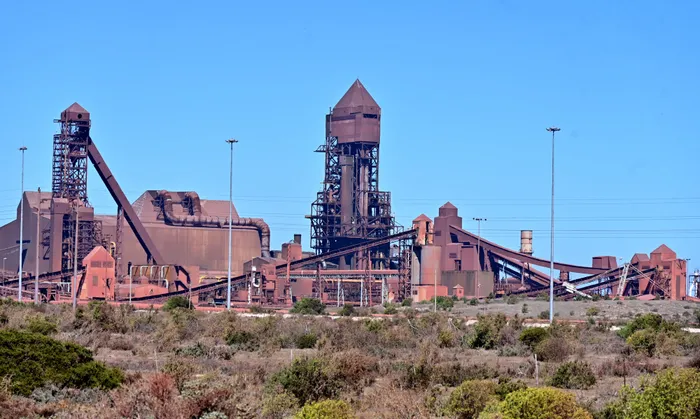
50‑Year‑Old South African Engineering Firm Closes Doors: Causes, Impact & What’s Next

50‑Year‑Old South African Engineering Firm Closes: A Deep Dive
Introduction
South Africa’s industrial landscape has taken a significant blow with the closure of a long-standing engineering firm, Fischer Housing & Engineering. This 50-year-old company, once a staple of the country’s engineering prowess, has ceased operations amid rising costs, failing infrastructure, and a declining steel industry. The company’s closure is not an isolated incident but a reflection of the broader systemic failures threatening South Africa’s economic stability.
The Fall of a 50-Year-Old Engineering Firm
Founded in the early 1970s, Fischer Housing & Engineering built a reputation for delivering reliable engineering and housing solutions across South Africa. Over the decades, the company weathered economic ups and downs, political changes, and technological evolution. However, recent developments have rendered its operations unsustainable.
Read more about the shutdown here:
🔗 Fischer Housing & Engineering Shuts Down
The Engineering Firm’s final days were marked by massive staff reductions, halted production lines, and canceled contracts. By mid-2025, only a skeleton crew remained to wind down operations.

Steel Industry Collapse: The Domino Effect
The closure of Fischer Housing & Engineering is just one thread in the unraveling fabric of South Africa’s steel industry. In late February 2025, ArcelorMittal South Africa (AMSA) announced its decision to shut down its long steel products division by April.
🔗 ArcelorMittal South Africa to Cease Long-Steel Production
This decision sent shockwaves through the manufacturing sector. With AMSA producing nearly 60% of the country’s steel, the move triggered immediate concerns for job security and infrastructure development.
According to BusinessTech, over 3,500 jobs were directly at risk from the AMSA shutdown, not including thousands more in downstream sectors like construction, logistics, and engineering.
A Bleak Outlook for Manufacturing Jobs after Collapse of the engineering company
The fallout is already being felt across the engineering and manufacturing sectors. In March 2025, one of South Africa’s most vital employers revealed it would begin cutting thousands of jobs nationwide.
🔗 Important Company Cutting Thousands of Jobs
These layoffs are linked not only to the steel supply issue but also to rising energy costs, logistical inefficiencies, and insufficient government support. In a nation where unemployment already exceeds 30%, these cuts exacerbate an already dire situation.
Infrastructure Development at Risk
The effects of the steel and engineering sector collapse extend far beyond private enterprise. South Africa’s ambitious infrastructure plan—valued at over R257 billion—is now in jeopardy.
🔗 Steel Cuts Threaten South Africa’s R257 Billion Infrastructure Drive
From railways to housing to public utilities, many of these projects depend on a consistent and affordable steel supply. With AMSA reducing production and local firms like Fischer Housing & Engineering closing, the pipeline of development is grinding to a halt.
Political Inaction and the Tariff Debate
Industry experts have long warned the government about dumping and the influx of cheap imported steel. Yet efforts to protect local manufacturing have largely failed.
In late 2024, labor unions and economists called for urgent intervention, including tariff adjustments and infrastructure investment. However, a lack of political will and policy delays made these efforts too little, too late.
Although 3,500 jobs were temporarily saved, these measures have been labeled as “band-aid” solutions that cannot prevent long-term decay.
International Repercussions
The closure of AMSA’s long products division even affected investor confidence globally. Within days, ArcelorMittal shares plummeted across the Johannesburg and European stock exchanges.
🔗 ArcelorMittal SA to Close Plant – Shares Fall
This event sends a signal to international investors about the instability of South Africa’s industrial sector, potentially reducing future foreign direct investment (FDI) in infrastructure and manufacturing.
Murray & Roberts and the Broader Industrial Decline
Fischer Housing & Engineering isn’t the only long-standing company to fall on hard times. Murray & Roberts, another icon of South African engineering, entered business rescue proceedings in early 2025.
🔗 Murray & Roberts – Wikipedia
This underscores a broader decline among heritage firms unable to withstand the pressures of rising operational costs, global competition, and internal inefficiencies.
Voices from the Ground
Employees at Fischer described the final months as “chaotic and hopeless.” One former project manager revealed that unpaid supplier bills and canceled tenders crippled their ability to execute even basic tasks.
Local construction companies that relied on Fischer for prefabricated housing units have now turned to imports or halted operations altogether.
Unions representing workers in the steel and engineering sectors have called for a national summit to address what they term an “industrial emergency.”
What’s Next for South African Engineering Firm?
Unless immediate structural changes are made, the collapse of Fischer Housing & Engineering may become a blueprint for other firms. Experts call for:
- Investment in renewable energy to reduce operational costs
- Strict anti-dumping measures to protect local steel
- Revamping logistics and rail networks
- Accelerated infrastructure contracts with guaranteed local sourcing
Without these interventions, South Africa’s dream of an industrial revival may remain just that—a dream.
Conclusion
The demise of Fischer Housing & Engineering is more than a business story. It reflects a dangerous unraveling of South Africa’s economic backbone. If strategic actions aren’t taken urgently, the country risks further job losses, stalled infrastructure, and irreversible industrial decline.
📌 Table of Contents
- Introduction
- The Fall of a 50-Year-Old Engineering Company
- Steel Industry Collapse: The Domino Effect
- A Bleak Outlook for Manufacturing Jobs
- Infrastructure Development at Risk
- Political Inaction and the Tariff Debate
- International Repercussions
- Murray & Roberts and the Broader Industrial Decline
- Voices from the Ground
- What’s Next for South African Engineering?
- Conclusion
This post by: Joburg ETC
Thanks for reading . for more news please visit our website : africatruthobserver.com